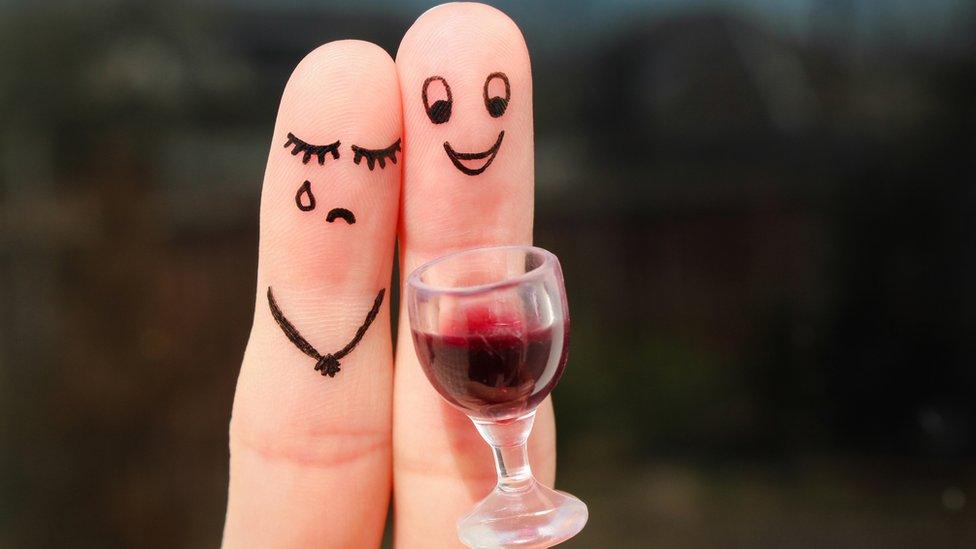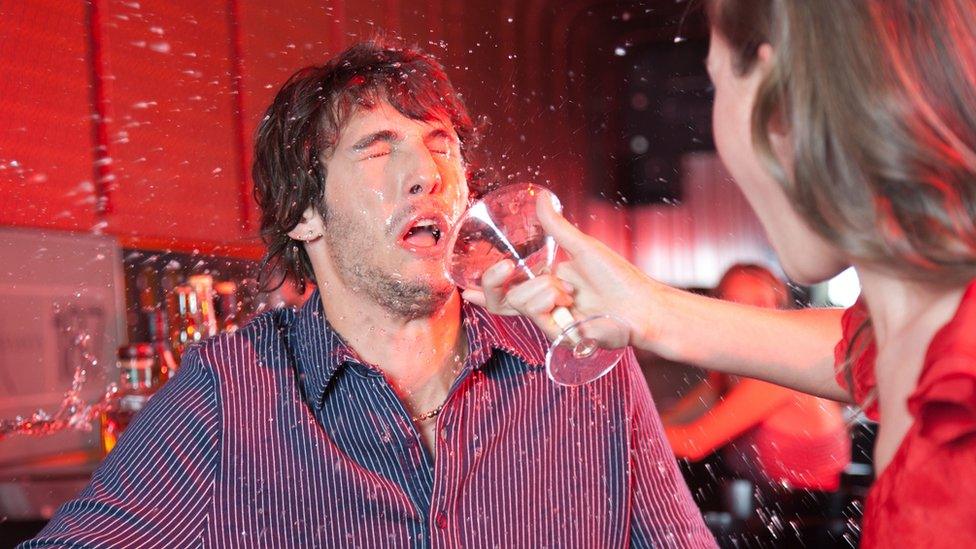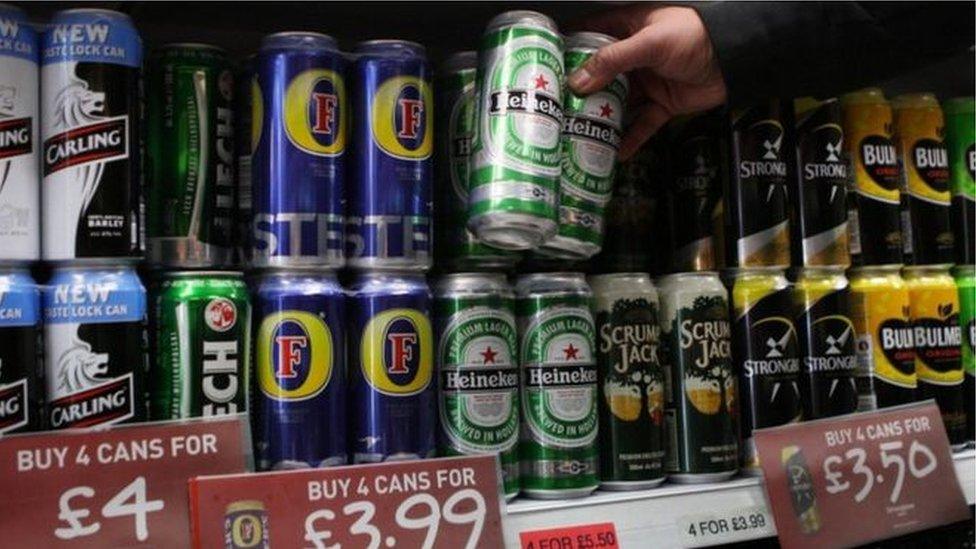Choice of tipple 'determines different moods'
- Published
- comments
Do you know how alcohol changes your mood?
Different types of alcoholic drink change and shape your mood in different ways, says a study into drinking and emotions.
Spirits may make you feel angry, sexy or tearful, while red wine or beer may make you feel relaxed, say researchers.
They questioned nearly 30,000 people aged 18-34 from 21 different countries for the study in the journal BMJ Open, external.
All the respondents drank beer, wine and spirits, and many said each type of alcohol had a different effect on them.
While having a few drinks can be enjoyable, researchers hope their findings will help highlight the dangers of dependent drinking.
Angry outbursts
People build up tolerance to alcohol over time and can end up drinking more to feel the same "positive" effects that they enjoy.

But they also risk getting negative ones too, says researcher Prof Mark Bellis from Public Health Wales NHS Trust.
The anonymous online survey, which recruited respondents via newspaper and magazine adverts and social media, found:
Red wine appeared to make people more lethargic than white wine
Respondents were most likely to report feeling relaxed when drinking red wine or beer
More than 40% said drinking spirits made them feel sexy
Over half said drinking spirits also gave them energy and confidence
But around a third said they felt aggressive when drinking spirits
Drinking spirits was more likely than all other drink types to be associated with feelings of aggression, illness, restlessness and tearfulness
Men were significantly more likely than women to associate feelings of aggression with all types of alcohol, particularly heavier drinkers
However, the findings show only an association and do not explain the reasons for changes.
Prof Bellis said the setting in which the alcohol was consumed was an important factor that the study tried to take into consideration by asking about drinking at home and outside of the home.
"Young people will often drink spirits on a night out, whereas wine might be drunk more at home, with a meal.
"There will be an element of expectation too. Someone who wants to relax might choose to have a beer or a glass of wine."

He said the way different drinks are marketed and promoted might encourage people to select certain drinks to suit different moods, but that this could backfire if it triggered negative emotions.
"People may rely on alcohol to help them feel a certain way. People might drink to feel more confident or relaxed but they also risk other negative emotional responses too."
Prof Bellis and his colleagues at King's College London said the findings suggested that dependent drinkers might rely on alcohol to generate the positive emotions they associated with drinking - they were five times more likely to feel energised than low-risk drinkers.
He also said the study revealed a difference between men and women's emotional relationship with different alcoholic drinks.
"We got stronger emotional relationships with women across pretty well every type of emotion, except for aggression." Aggression, he said, was more likely to be felt among men.
Dr John Larsen, from Drinkaware, said: "This study highlights the importance of understanding why people choose to drink certain alcoholic drinks and what effect they expect these drinks will have on them.
"The UK chief medical officers' guideline for both men and women states that in order to keep health risks from alcohol to a low level it is safest not to be drinking more than 14 units a week on a regular basis."
That equates to 12 single measures of spirits, six pints of beer or six 175ml glasses of wine a week.
Experts say setting a minimum unit price of 50 pence per unit would help cut alcohol-related deaths.
A minimum price policy will come into force on 1 May 2018 in Scotland.
Legislation to establish a minimum price is currently under active consideration by the Welsh Government and by the Irish Senate. There are no plans yet to do the same in England, although the Home Office says the policy is under review.
- Published15 November 2017
